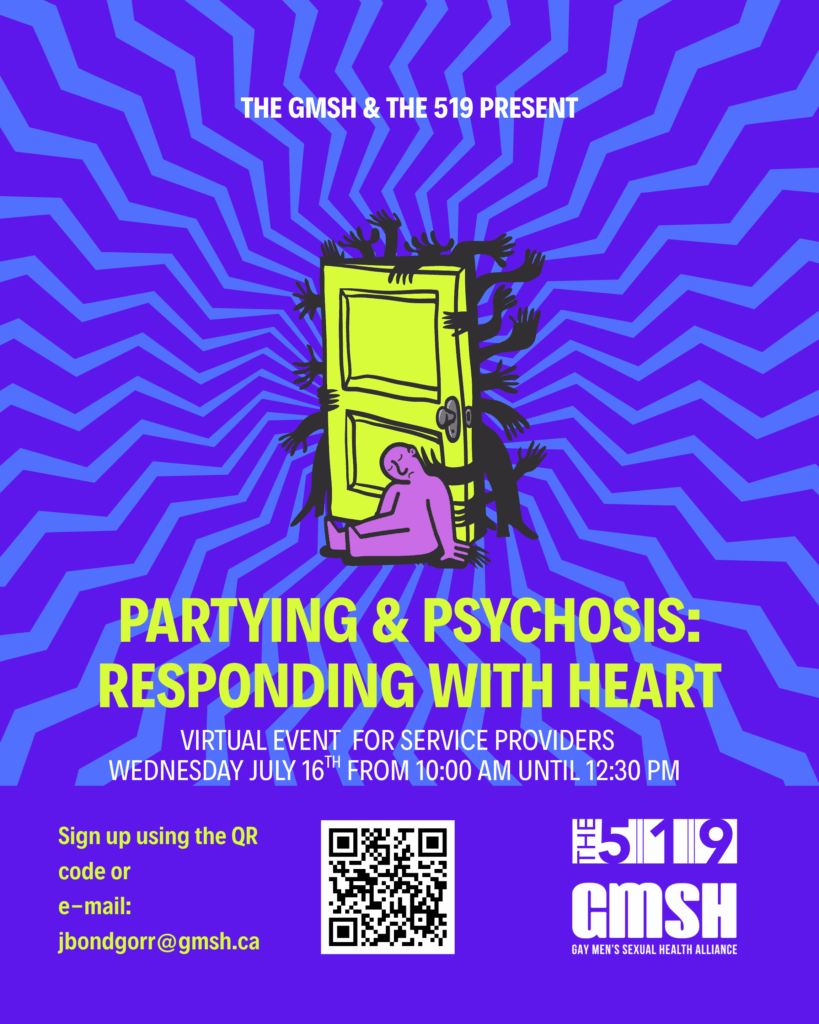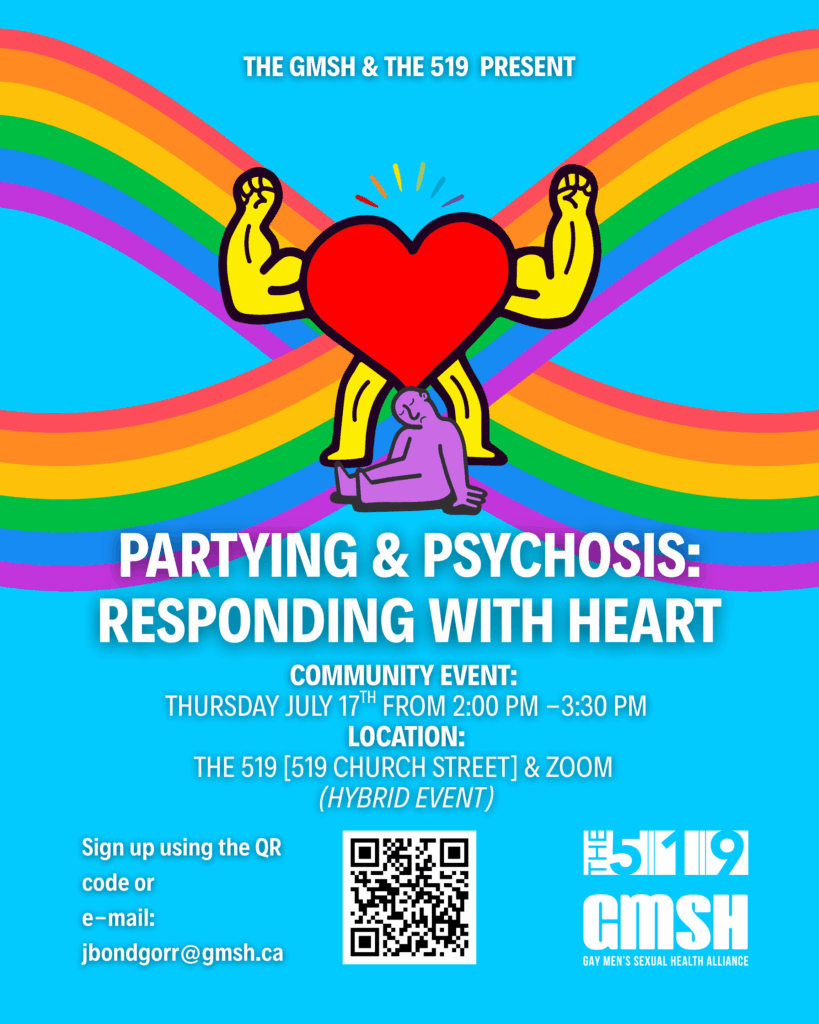Interested in starting up Pride events where you live? Pride started out in many places as a community grassroots protest, to take up space and demand visibility, safety, and equal rights for 2SLGBTQ+ people. These days it can seem like large scale Pride events in major cities require event staffing, corporate sponsorship and city permits – but […]
July 16 & 17 Workshops — Partying & Psychosis: Responding With Heart

- July 16 & 17 Workshops — Partying & Psychosis: Responding With Heart
July 16 & 17 Workshops — Partying & Psychosis: Responding With Heart
July 09, 2025
Gay Men’s Sexual Health Alliance is leading two community workshops next week in collaboration with the 519 Community Centre on the intersection of party and play (using substances with gay sex) and psychosis. This is often linked to stimulant use and other contributing factors, including sleep deprivation and emotional stress.
Research on party n’ play-related psychosis is limited. One study estimates that 36.5% of individuals using crystal meth experience psychosis. Notably, 2SGBTQ+ men are over four times more likely to have used meth in the past year.
On July 16, we’re holding a VIRTUAL event aimed at SERVICE PROVIDERS from 10am to 12:30pm.
On July 17, we’re holding an IN-PERSON / HYBRID event for the BROADER COMMUNITY.
*** If you registered prior to July 8th, your e-mail was not captured correctly on our form, meaning we cannot send you a link to the training sessions.
We are asking that you kindly send an e-mail to jbondgorr@gmsh.ca confirming the name you registered under and your e-mail information by no later than Monday, July 14th so we can send you log-in details for the event.
We know many of you forwarded this e-mail to colleagues, community members and other networks. If you can send a link to this page to anyone who you know may have received the original e-mail, we can capture as many folks as possible who wanted to attend. We appreciate your help, and appreciate your understanding with this issue.


Psychosis can be identified by the presence of three types of symptoms: delusion, hallucination and disorganized thinking or behaviour.
One common misconception is that psychosis makes people dangerous or violent—when most individuals experiencing an episode are feeling unsafe and frightened and require understanding and support from both the community at large, and service providers. Stigma remains the biggest barrier to care for those experiencing psychosis, often preventing individuals from seeking support. This challenge is compounded by a lack of culturally safe mental health services and wraparound care options.
“It doesn’t matter what causes psychosis. If you’re in psychosis you’re experiencing it. That’s what you need support with.”
- Steph Massey (Manager of Community and Peer Programs, The 519)
For more information, check out these new informative videos on the subject:
- A Community Conversation about Party N’ Play and Psychosis, hosted by Mikiki:
https://youtu.be/xi_inL91iUQ?si=hzWH51hC9l5hWiDQ
- Handling Psychosis Compassionately in Our Community, with community and harm reduction worker Steph Massey:
https://youtu.be/q3jZZDk6TF8?si=jrZy25MNxapqZP1K
Jordan Bond-Gorr of the GMSH explains the video’s goals:
“These videos encourage both community members and service providers to respond with care. Service providers must prioritize culturally safe practices, while community members can learn strategies to support those in crisis.”